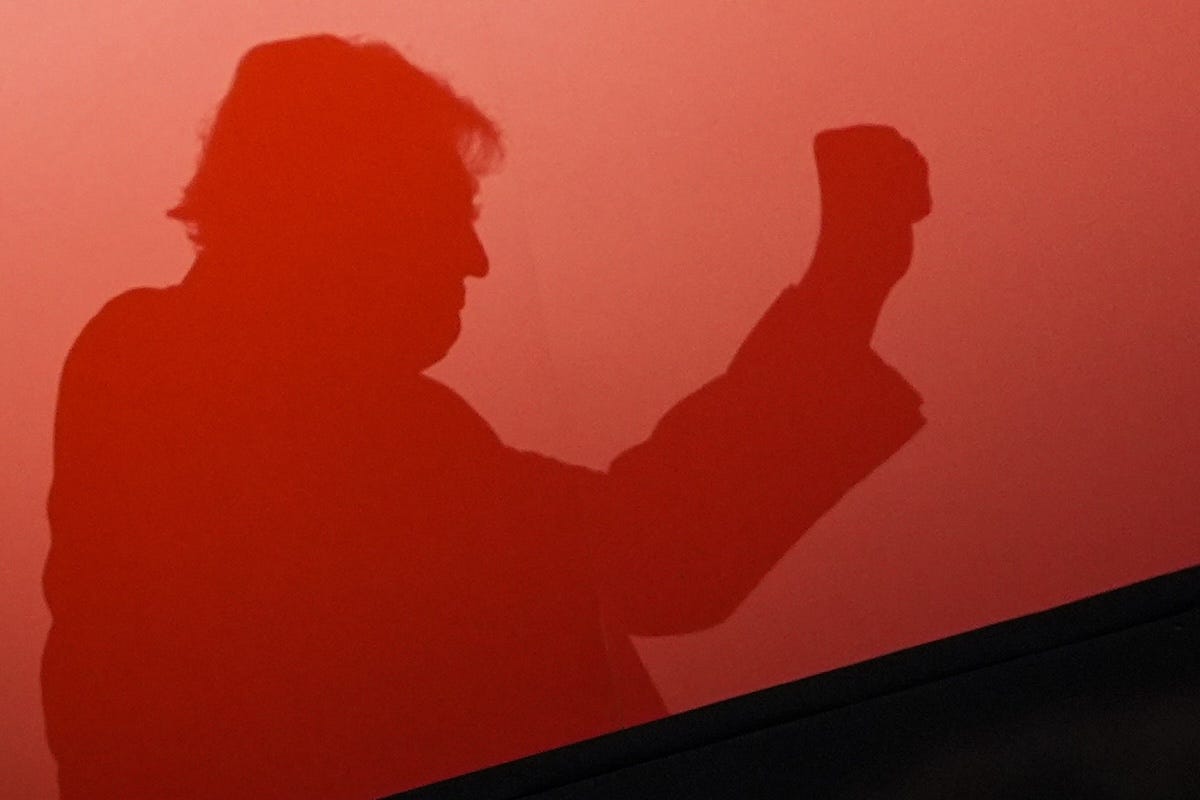Reclaiming "They"
Republicans use the term to impose collective guilt; we can use it to condemn specific bad actors. Including Trump.
Donald Trump sent federal occupying forces into Washington, DC, hoping to instigate a spiral of violence.
That was not his only ulterior motive, but it was one of his most transparent.
He commandeered the metropolitan police, made DC cops team up with federal agent,s to assist them as they snatched immigrants off the streets, and deployed National Guard troops—all over the fierce objection of residents. When this generated no violent backlash (a famous incident involving a sandwich notwithstanding) he ratcheted further, setting up legally dubious checkpoints and ordering guardsmen to carry assault rifles.
And yet…it hasn’t worked. No riots, no ambushes. Just throngs of people marching peacefully in the streets, and a demoralizing slog for the activated agents and officers.
In a sense Trump has been playing chicken, because if the strife he engineered is going to escalate into violent clashes, he can’t know how. He wants to stoke disorder so he can re-establish “order” by force, and parlay that into wider-scale occupation. But for all he knows, his fantasy scenario could unfold as a Kent State-style fiasco.
Over a month in, though, nothing. I can’t promise or be sure that Trump will never get what he wants. But he’d probably have to ramp up the provocations even further, threatening his whole nefarious scheme.
I think this sequence of events tells us two things:
Trump’s libel, echoed by much of the GOP, that liberal and left-wing groups get funding from shadowy globalists to incite violence, is preposterous. If well-financed agents provocateur intended to whip up violence against federal agents and troops, they…well, it appears they forgot their marching orders, and accidentally modeled textbook peaceful protest instead.
Trump understands at some level that he is the source of incitement. His real bet is not that occupying Washington—infuriating its citizens, and menacing its immigrant population—will draw out violent agitators funded by shadowy progressives. It was that someone will eventually reach a breaking point and lash out with more than just a sandwich.
At the root of all manner of Trump-era incitement is an indifference to the risks, harms, and indignities it inflicts on others. He and his loyalists understand that if the incitement succeeds, they can use it as a basis for seizing more power and cracking down harder. If a troop or a cop gets injured or killed in the process? That’s collateral damage. And if a citizen commits or suffers violent? That person was sent or radicalized by “they.”
To the best of our knowledge, Tyler Robinson killed Charlie Kirk, but you’re much likelier to hear rightists loosen their otherwise strict pronoun rules, and refer to him as “they,” rather than as “Tyler Robinson.”
Except… by “they,” this hodgepodge of politicians and propagandists scarcely mean to evoke Robinson himself. Republicans instead want you to believe that “they” is the aforementioned borg of progressive organizations, which are more to blame for Kirk’s murder than the individual “they” supposedly radicalized. Was Robinson steeped in the world of progressive advocacy organizations or left-leaning magazines? Seems unlikely. If he was, would culpability for Kirk’s death transfer to them? Not under our laws or the Constitution or good moral intuition. But it hardly matters. The way it works in the GOP’s circular telling is that “they” incite violence, such that every violent act Republicans choose to emphasize wouldn’t have happened but for “they.”
This conception of “they” is fictional and (thus) libelous. Fictional in that it conjures bogeymen to rewrite simple history; libelous in that it lays crime at the feet of innocent parties. Who shot Kirk? Not Robinson, but “they.” Who shot Trump? Not Thomas Matthew Crooks, but “they.” Who is “they”? George Soros, the Ford Foundation, The Nation magazine. Libels.
But there is a definition of “they” that might be of use to honest people:


